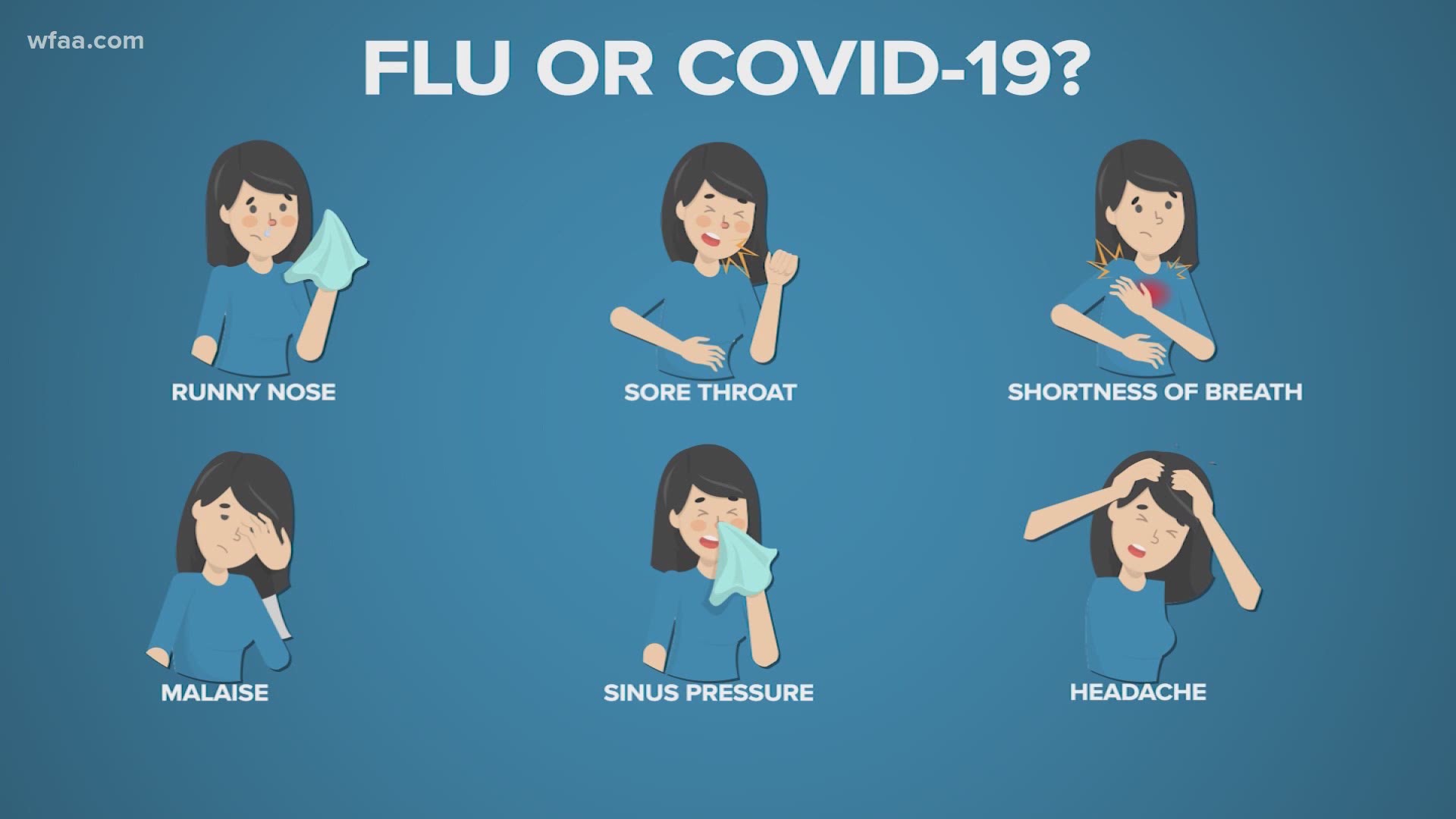We have all played that guessing game of what illness we may have or what illnesses our children have. Is it flu? Is it COVID-19? Is it allergies? WFAA connected with Dr. Bryan Thibodeau of Medical City Dallas who lays out the most notable difference between the illnesses.
"I know what it's like to manage the symptoms that you're seeing, what the symptoms you're familiar with and what to expect in these unknown times," said Thibodeau. "With allergies, you're typically going to have issues related to your sinuses or eyes," he said.
Allergies result in common symptoms like itchy and watery eyes, and sneezing. But flu and COVID-19 are not as easily distinguishable. Both flu and COVID-19 can be expressed in body aches, chills, fevers, nausea, vomiting, and diarrhea.
"But unique to COVID is the loss of taste and smell," said Thibodeau.
But it's the overlap between the three illnesses that confounds most of us. These symptoms are runny nose, congestion, sinus pressure, headaches, sore threat, shortness of breath and malaise.
Dr. Thibodeau tells WFAA that the point at which you or your loved one has difficulty breathing, shortness of breath, and difficulty consuming is when you should seek medical help.
"To the point where you can't keep any fluids or food in you and then you're going to get really dehydrated, really weak, that's when you need to seek medical attention," he said.
There is no one answer fits all for the illnesses we deal with. But it doesn't have to be a guessing game either. Both the CDC and Texas Department of State Health Services have online tools to help residents distinguish their symptoms and also connect people with the right healthcare provider.

